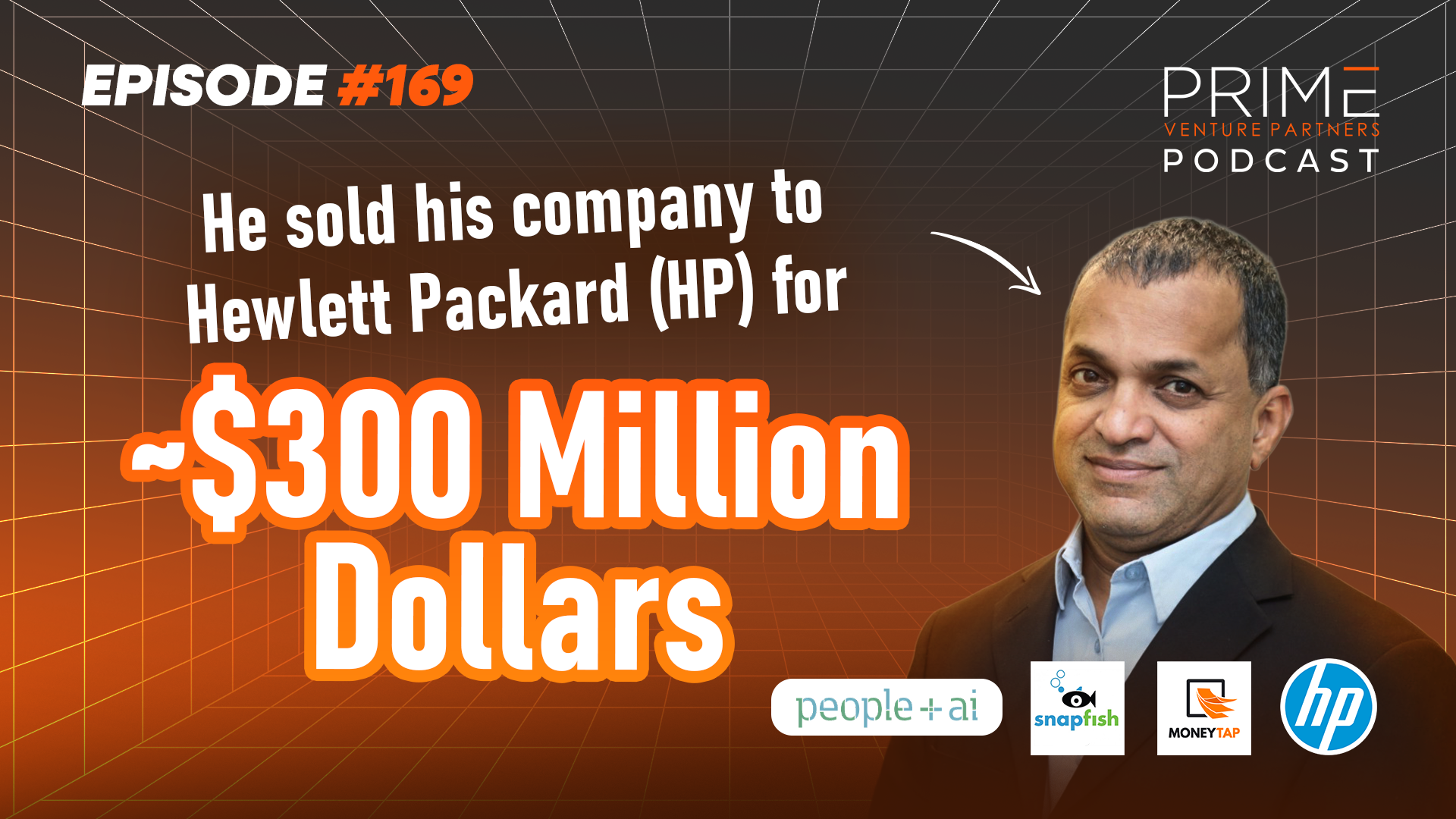
“As a founder, you have only one company. You don’t get a second shot. Understand when to fuel growth—and when to pull back." – Bala Parthasarathy
From Chennai to Silicon Valley, from building Snapfish to scaling Aadhaar, from founding Freo to now driving India’s AI awakening, Bala Parthasarathy’s career spans cycles, sectors, and continents. In this unfiltered conversation, a seasoned entrepreneur, venture capitalist, and now a "messiah of the brave new world of AI", Bala shares his remarkable journey, offering profound insights for aspiring and established entrepreneurs alike.
Silicon Valley’s dot-com lessons
Bala’s first brush with entrepreneurship was as co-founder of Snapfish in 1999, right in the middle of the dot-com boom. "We raised a lot of money. Blew up a lot of it too. Threw some great parties," he jokes. But then the bust came, and with it, a brutal lesson in survival.
Snapfish went from 200 people to 20, but the founders then turned the business around, made it profitable, and eventually sold it to Hewlett-Packard.
This experience instilled a crucial lesson for Bala: understanding the venture capital cycle. He highlights that while VCs fuel growth, entrepreneurs have "only one company" and must "watch where the world is going and act accordingly".
Bala stresses the importance of not being "too conservative" during growth phases like the 2020-2021 era, but equally, recognising when the market shifts starts demanding "profitable companies". His mantra is simple but profound: founders must track not just company metrics, but also market cycles. Grow when it’s time—but know when the tide is turning.
Also Read This startup doesn’t just use AI, it’s run by AI
This startup doesn’t just use AI, it’s run by AI
Freo and fintech: Solving fundamental problems in India
After a successful exit in the US, Bala returned to India to start again—this time with a deeper purpose. He co-founded MoneyTap, which evolved into Freo, a digital credit platform serving millions of users.
“Building in India is more rewarding. You’re solving basic, first-order needs like access to credit, not just convenience,” he proclaims.
But it’s also more complex. Regulation is tight, speed is slower, and predictability is rare.
“India hasn't had a fintech blow-up like the US or China. That’s because the regulator is doing its job. But it also means you have to build with patience and compliance,” Bala adds.
The AI imperative: Why entrepreneurs must be "very scared"
Today, Bala spends a large part of his time immersed in the world of AI. He runs a private WhatsApp group to curate the latest in AI, advises a $7-billion European PE fund on AI transformation, and supports Nandan Nilekani’s People+AI initiative.
"You should be very scared". He clarifies this isn't a "runaway scared" but an "8, right?" on a scale of 1 to 10. "If you're sitting at 2, you're going to get buried," he warns, comparing the situation to using a feature phone in 2010 when the iPhone was on the anvil.
For entrepreneurs, Bala stresses that inaction is not an option. He advises them to "start using the tools" because "in every category, there are low-hanging fruits today that AI can do". He provides compelling examples across various functions:
- Sales and marketing: "Digital marketing is completely changing". He highlights the impact on SEO and search, which are major customer sources, and notes that "costs are going up".
- Product management: "AI is the best writer you can have. It's the best brainstorming partner you can have". This allows product managers to write "very detailed documents" and use "wipe coding" to create "mock-ups and prototypes" much faster. Bala even demonstrated live how to "pull and scrape every website of your competition and get me all the features".
- Coding and development: "Coding, a whole new topic in almost every phase from definition, design, architecture to DevOps and coding," he notes.
- Customer service: "is already there, right? You should be using it".
He cautions that while AI "sounds perfect, but it's not perfect", and fundamentally, "you're riding a beast that you don't completely control". This means embracing the "wild" nature of AI, constantly adapting and learning.
Work hard. But don’t forget to play hard.
Beyond startups and AI, Bala is also known for his passion for biking, hiking, and scuba diving—often taking investor calls from Peru or closing term sheets from Nepal.
“Founders are imbalanced by nature. But this is a 10-year journey. Don’t lose yourself along the way,” he asserts.
He encourages founders to make time for family, hobbies, and quiet escapes. “It’s not about work-life balance. It’s about staying sane and staying whole.”
Ultimately, Bala's philosophy is simple yet powerful: "Play hard, you know, work hard, but definitely play hard. It's super important".
Timestamps:
00:00 – Bala’s background and Snapfish origins
03:00 – Dotcom boom, bust and Snapfish acquisition
06:30 – Understanding VC: What founders often get wrong
10:00 – Building Aadhaar at scale with Nandan Nilekani
13:00 – Freo, fintech and operating in regulated markets
16:00 – AI disruption and founder readiness
23:00 – How every function is being reshaped by AI
28:00 – Founder life: Balance, energy and playing the long game
Edited by Kanishk Singh
(Disclaimer: The views and opinions expressed in this article are those of the author and do not necessarily reflect the views of YourStory.)
Original Article
(Disclaimer – This post is auto-fetched from publicly available RSS feeds. Original source: Yourstory. All rights belong to the respective publisher.)